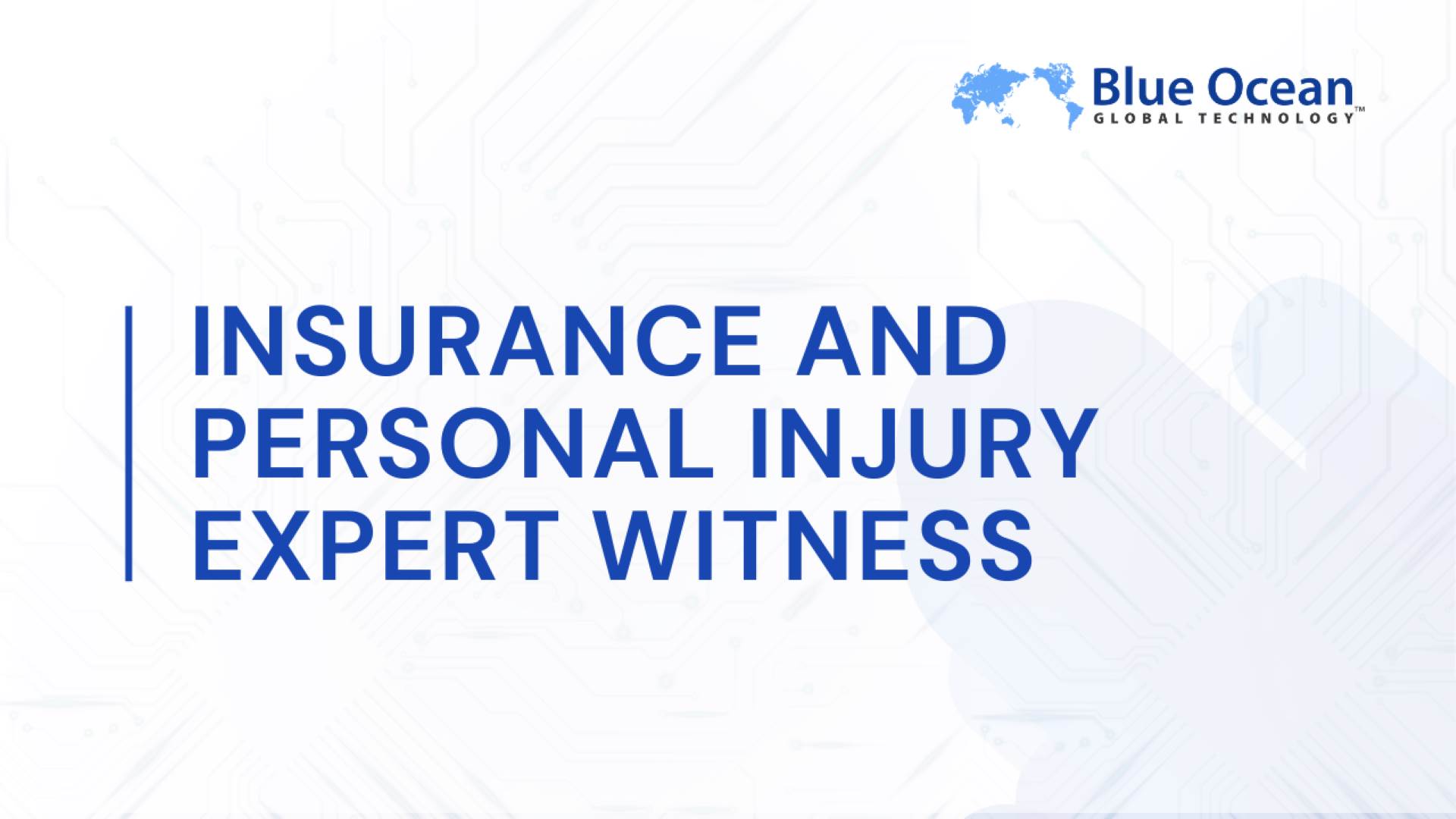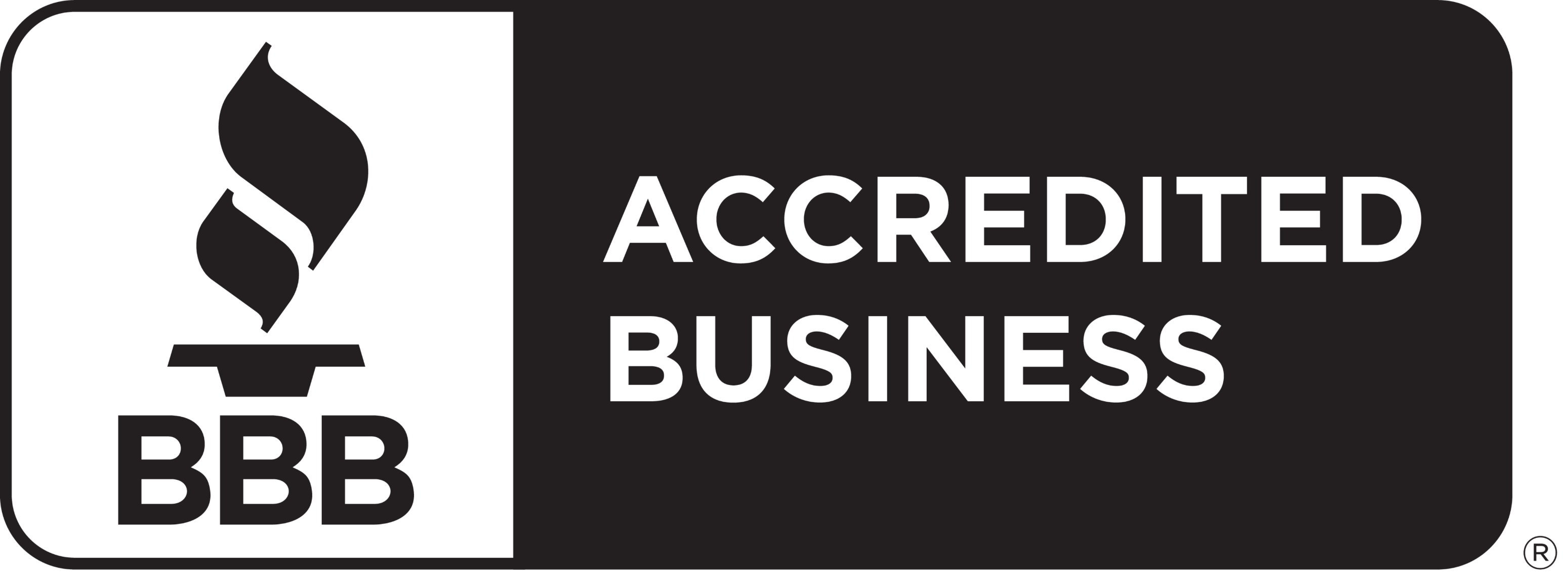An insurance expert is a professional with specialized knowledge of industry practices and regulations. They are often called upon to provide testimony in legal cases.
By sharing their knowledge and insights, insurance and personal injury expert witnesses — also known as subject matter experts (SMEs). They can impact the outcome of personal injury cases by increasing juror understanding of complex topics. For instance, an insurance and personal injury expert witness can clarify policy details in cases involving disputed insurance claims after an accident.

Establishing yourself as an insurance and personal injury expert witness can give you the opportunity to
- Contribute to legal proceedings,
- Strengthen your professional resume,
- Help lawyers and their clients achieve just outcomes.
Blue Ocean Global Technology has advised some of the largest insurance companies in the world during personal injury proceedings. Our team includes some of the most sought-after personal injury expert witnesses, such as CFA Sameer Somal. We’ve compiled some practical tips to help you succeed as an expert witness.
8 Tips for Success in Your Expert Witness Role
Before testifying in depositions or trials, ensure that you follow these eight key tips:
1. Understand the Role
While the general requirements of an insurance and personal injury expert witness are the same from one case to another, each lawyer may have unique expectations and needs. Therefore, it’s important to clarify your legal duties and responsibilities with the legal team that hired you. Ask plenty of questions, and never make assumptions regarding what you can and cannot do.
Similarly, familiarize yourself with legal standards and requirements for providing admissible testimony. As an established professional, there are some circumstances where you will be allowed to give opinions. However, it’s vital to determine when you can and cannot incorporate opinions into your testimony.
2. Develop Expertise
Acquiring extensive knowledge of insurance is a prerequisite to becoming an insurance SME. However, you’ll also need specialized knowledge of personal injury law and how it relates to insurance.
The world of personal injury law constantly changes, meaning you’ll have to stay up-to-speed on industry trends and new case law. This can mean pursuing certifications and additional qualifications. For instance, you can obtain board certifications in relevant specialties or explore continuing education opportunities.
It’s also crucial to seek feedback from attorneys, judges, and colleagues to identify your strengths and weaknesses. Reflect on your past testimonies, and learn from these experiences to become a well-rounded expert.
3. Communicate Effectively
You’ll need to communicate clearly with jurors, judges, and attorneys. Voice any concerns right away. Practice your verbal communication skills, and master the art of breaking down complex concepts into digestible formats. Keep in mind that your purpose is to increase the audience’s understanding.
However, communicating effectively means more than simply making complex information easy to digest. You’ll also need to be likable, as likability has been strongly linked to jurors’ judgments of credibility. Essentially, if jurors like you, they are more likely to believe your testimony.
4. Prepare Thoroughly for Deposition and Trial
Thoroughly review case materials and evidence before your first deposition. Anticipate pushback from the other party’s attorney, as they will want to diminish your credibility.
Work with the attorney who hired you to prepare for challenging questions and tactics from opposing counsel. This can help ensure you are ready for whatever the other side throws your way. Make sure to remain honest and accurate in your responses while avoiding conjecture.
5. Maintain Professionalism
There is a study published in The Journal of the American Academy of Psychiatry and the Law. The study states a strong correlation between SME confidence and how credible jurors perceive them to be. By exuding a balance of professionalism and confidence, you can make your testimony appear more credible and persuasive.
Maintaining professionalism means adhering to ethical standards, avoiding conflicts of interest, and disclosing any prior relationships with the parties involved in the case. Keep your emotions in check, and always remain objective. Be respectful to all involved, and adhere to courtroom decorum.
6. Collaborate With Attorneys
As mentioned, you should work closely with the legal team who brought you on board from the get-go. Understand how you fit into their overall case strategy and objectives. Where appropriate, solicit guidance from the attorney you are collaborating with.
Whether you are providing courtroom testimony or meeting with a lawyer for case prep, being clear and concise is vital. Make yourself available for follow-up consultations to ensure you and the attorney are on the same page.
7. Utilize Technology
Use the latest technology to support case management and build compelling presentations. For instance, you can use analytics tools to obtain more information about plaintiffs or defendants. These can be found across search results and social media and provide critical insights for your reports.
Stay updated on emerging tech and its impact on jurors. For example, interactive graphics have become increasingly popular in recent years. Adding visual aids and animations to your presentation can help drive home key points and make your information more digestible.
As part of our process, Blue Ocean Global Technology uses tools like Hootsuite, Brandwatch, and Sprout Social. Such is to conduct a comprehensive analysis of the other party’s social media platforms.
For example, if someone is seeking damages due to a catastrophic injury, we analyze their activities on social media platforms as such:
- YouTube,
- Reddit,
- Facebook,
- Instagram, and
- X.
This is to determine the impact of the incident on their life.
8. Draft Exceptional Reports
Make sure that any documents you prepare are clear, concise, and well-organized. These reports will likely be admitted as evidence, meaning everyone involved in the case will have the opportunity to review them.
Crafting exceptional reports can help solidify your status as an insurance and personal injury expert witness. Conversely, poorly constructed documents may hurt your credibility and make your testimony less valuable.

Trusted Expert Witness: Tips of the Trade
At Blue Ocean Global Technology, we are passionate about helping our clients achieve favorable outcomes during personal injury proceedings. Clients rely on our team to conduct investigations on both routine and high-profile claims where millions of dollars are on the line.
We apply many of these concepts to our investigations and are confident that they can help you become a more impactful insurance and personal injury expert witness.
Whether you are already a practicing insurance and personal injury expert witness or aspire to become one, these tips can help you excel in your role. Apply them, set your sights on continuous improvement, and never stop honing your skill set.
Elevate Your Case with Our Expert Witness Services!
Get in touch with our global team today.
Frequently Asked Questions
1. What Qualifications Do I Need to Become an SME?
You’ll need relevant education, experience in the insurance field, and, potentially, certifications to become an insurance and personal injury expert witness. Generally, SMEs have more than ten years of experience in the field, but there aren’t any firm rules regarding how much experience you need.
2. How Do I Gain Experience as an Expert Witness?
Connect with lawyers who handle personal injury and insurance cases. Share information about your background and skillset while also being clear that you’d like to contribute to future proceedings by offering your testimony.
3. What Responsibilities Will I Have as an SME?
As an insurance and personal injury expert witness, you may be responsible for analyzing case documents, medical records, and insurance policies to form an opinion. You may also have to provide deposition testimony and speak in court as an impartial SME. Depending on the nature of the case, you may need to prepare detailed, written reports outlining your findings and opinions.
Stay Ahead in the Legal Sphere!
Join our team of global personal injury expert witnesses who will assist you in navigating the requirements to win the case.













